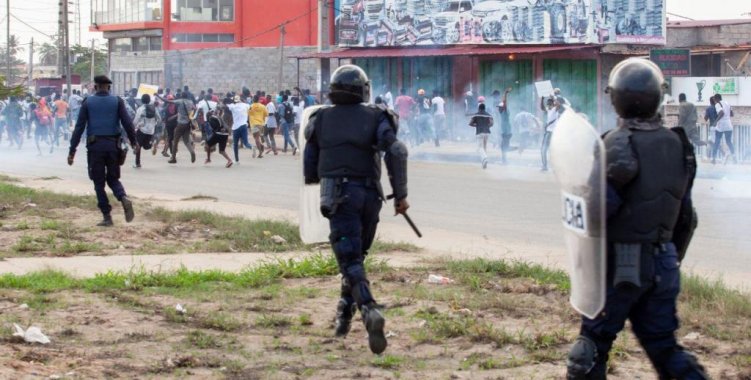The document recalls that Angola has been ruled by the same party since independence and that the authorities have systematically repressed political dissent.
In addition, corruption, procedural violations and abuses committed by security forces remain commonplace, Freedom House highlights, noting that since the election of President João Lourenço in 2017, the government has eased some restrictions imposed on the press and civil society, "but challenges remain."
The Washington-based non-governmental organization (NGO) said that only 16 percent of the 49 sub-Saharan African countries have "free" status, 43 percent have "partially free" status, and 41 percent have "not free" status.
Freedom House uses six criteria to make the evaluation: electoral process, political participation and pluralism, governmental functioning, freedom of expression and religion, associative and organizational rights, rule of law and personal autonomy and individual rights.
In the document on Angola, Freedom House points out that Angola's first municipal elections, planned for the end of last year, were postponed due to the covid-19 pandemic, with no new date set, leading some analysts to attribute the decision to the government's reluctance to give up the power to appoint officials at the municipal level.
It also highlights that the Government has privatized a number of media outlets, owned by members of the political and military elite, but funded by the state, raising concerns about transparency in relation to privatization and subsequently with censorship in some organs.
They also note that the restrictions imposed by the pandemic "were applied with violence by the police and the military," with the confinement measures being associated with killings and human rights violations.
In the field of political rights, Angola retreated one position, the same happening in what concerns pluralism and political participation. At issue is the refusal of the Constitutional Court - aligned with the government - to allow the leader of the political force PRA-JA Serv Angola, Abel Chivukuvuku, to register the movement as a new political party.
"Although a multi-party system exists, competition is limited. The process of creating new political parties is fraught with bureaucratic obstacles and attempts at co-optation, factors that seriously undermine public confidence in new parties," Freedom House stresses.
Citing irregularities in the process, the Constitutional Court in August 2020 rejected the legalization of party led by Abel Chivukuvuku. The ruling also imposed bureaucratic limits on the ability of Chivukuvuku and other party promoters to try to establish a new and different party in the coming years.
The court's decision has been appealed.
Angola also has a low score regarding the functioning of the government and feels that there are few safeguards against corruption. In addition, "government operations are generally opaque," the NGO further notes.







